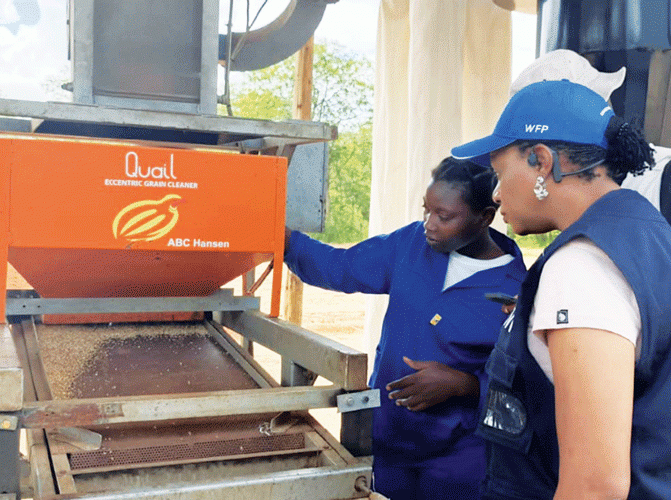
THE African Export–Import Bank (Afreximbank) has set aside more than US$400 million in credit for Zimbabwean-based corporates seeking to venture onto the continent.
The facility is part of the bank’s efforts to catalyse industrialisation and boost intra-regional trade for local firms, at a time when the companies are looking to the outside market to stay viable owing to its forex earning potential.
To date, Afreximbank has disbursed over US$13 billion in loans to Zimbabwe.
Between 2017 and 2023, more than US$10 billion worth of credit was poured into Intra-champs, a unique group of African companies selected to receive financing, market access and technical assistance from the bank.
Addressing delegates on day two of the 7th Sadc Industrialisation Week yesterday in Harare, Afreximbank’s senior executive vice-president Denys Denya said the initiative closed big gaps in trade and marketing formation.
“I’m happy to announce that we have set aside US$400 million for Zimbabwe-based corporates which want to venture onto the continent. We recognise the fragmented nature of production systems in the region,” Denya said.
“That is why we have rolled out our initiative for supporting the emergence and expansion of export trading companies to aggregate products for the export market. This initiative aims to close the big gaps in trade and marketing formation ... as well as servicing key sectors like agriculture with financing and other critical value chain mechanisms.”
Denya added that, in this regard, the bank had also disbursed over US$3,5 billion to export trading companies operating in the region in countries such as Tanzania, Malawi, Zambia and Zimbabwe.
- MIHR petitions govt on Lubimbi relocations
- ‘Timely IMF boost saved Zim’
- In Full: Twelfth post-cabinet press briefing: May 10, 2022
- Blocked funds choke NMB
Keep Reading
This was done by integrating the agricultural sectors in the region as well as global value chains.
Denya said in a bid to deepen the initiative to support and accelerate transformation of economies in the region, the bank would soon conclude a US$300 million financing facility for Export Trading Company operations in Malawi, which integrated production, processing and exporting activities.
He said similar facilities were being rolled out in other countries.
Denya said the bank was also implementing the Intra-African Engineering, Procurement and Construction (EPC) Contract Promotion Programme, launched last year, to open doors and allow African contractors to capitalise on various infrastructural investments available across the continent.
“... the market for EPC contracts is estimated at US$60 billion, and unfortunately it is dominated by foreign entities that are fully supported by their governments, policy and financial institutions to enable them to win EPC contracts on the continent,” Denya said.
“In order to put African companies at par with their foreign competitors, the African Export-Import Bank is implementing an EPC initiative to support African contractors to win and execute major infrastructural projects across Africa. To date, we have supported companies from various African countries to win contracts valued at over US$12 billion.”
He said the support provided included training, financing to EPC contractors, insurance to cover construction risks, lead bonds, project completion, payment guarantees and other guarantees.
“African Export-Import Bank has supported a number of companies to execute this project including Mota-Engil Africa with over €675 million over the past five years as they rolled out projects in the rail, road and other strategic infrastructural projects across the regions that are key to the industrialisation agenda.”
He said the bank had also provided financing to Egyptian and Arab contractors in Sweden to undertake project development in Tanzania.
Denya further stated that the bank has established a subsidiary to provide equity and mezzanine finance that is, the Fund for Export Development in Africa which provides patient capital to companies that are involved in intra-Africa trade, export development and manufacturing in Africa.
This concept revolves around evaluating a company’s earnings before income tax expenses are deducted and is a metric used by investors and lenders to assess a company’s financial performance and profitability without the influence of tax obligations.
By focusing on equity, financiers can get a clearer picture of a company’s operational efficiency and earnings potential and in practical terms, equity and mezzanine financing can influence how much capital a company can raise or the terms of a loan.











